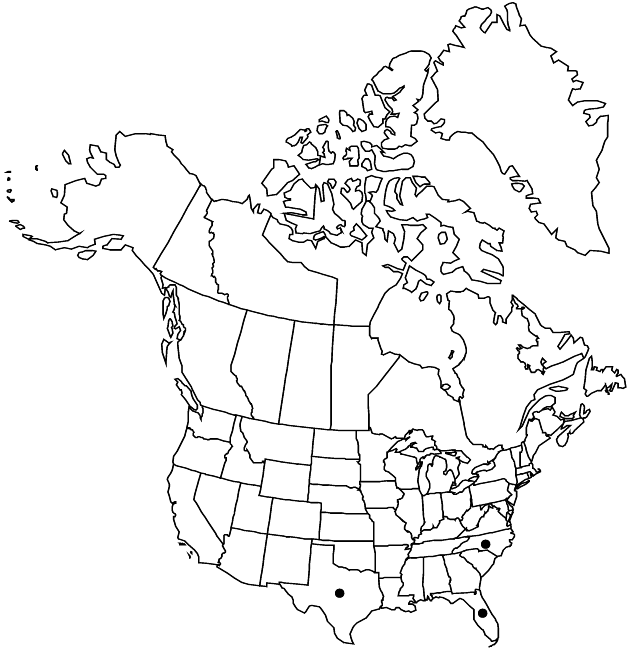Helianthus argophyllus
Fl. N. Amer. 2: 318. 1842.
Annuals, 100–300 cm. Stems (silvery white) erect, usually tomentose or floccose. Leaves mostly cauline; mostly alternate; petioles 2–10 cm; blades ovate to lance-ovate, 15–25 × 10–20 cm, bases truncate to subcordate, margins entire or serrulate, abaxial faces usually floccose, sericeous, or tomentose, gland-dotted. Heads 1–5. Peduncles 2–8 cm. Involucres hemispheric, 20–30 mm diam. Phyllaries 20–35, ovate to lance-ovate, 15–18 × (2–)5–8 mm, apices long-attenuate, abaxial faces usually densely white-villous, gland-dotted. Paleae 10–11 mm, 3-toothed (apices glabrous or sparsely villous). Ray florets 15–20; laminae 20–30 mm. Disc florets 150+; corollas 6.5–7.5 mm, lobes reddish; anthers dark, appendages dark (style branches reddish). Cypselae 4–6 mm, glabrate; pappi of 2 aristate scales 2–2.7 mm. 2n = 34.
Phenology: Flowering late summer–fall.
Habitat: Open areas, sandy soils
Elevation: 0–30+ m
Distribution

Fla., N.C., Tex., introduced in South America (Argentina), Africa, Australia.
Discussion
Helianthus argophyllus hybridizes naturally with H. annuus.
Selected References
None.